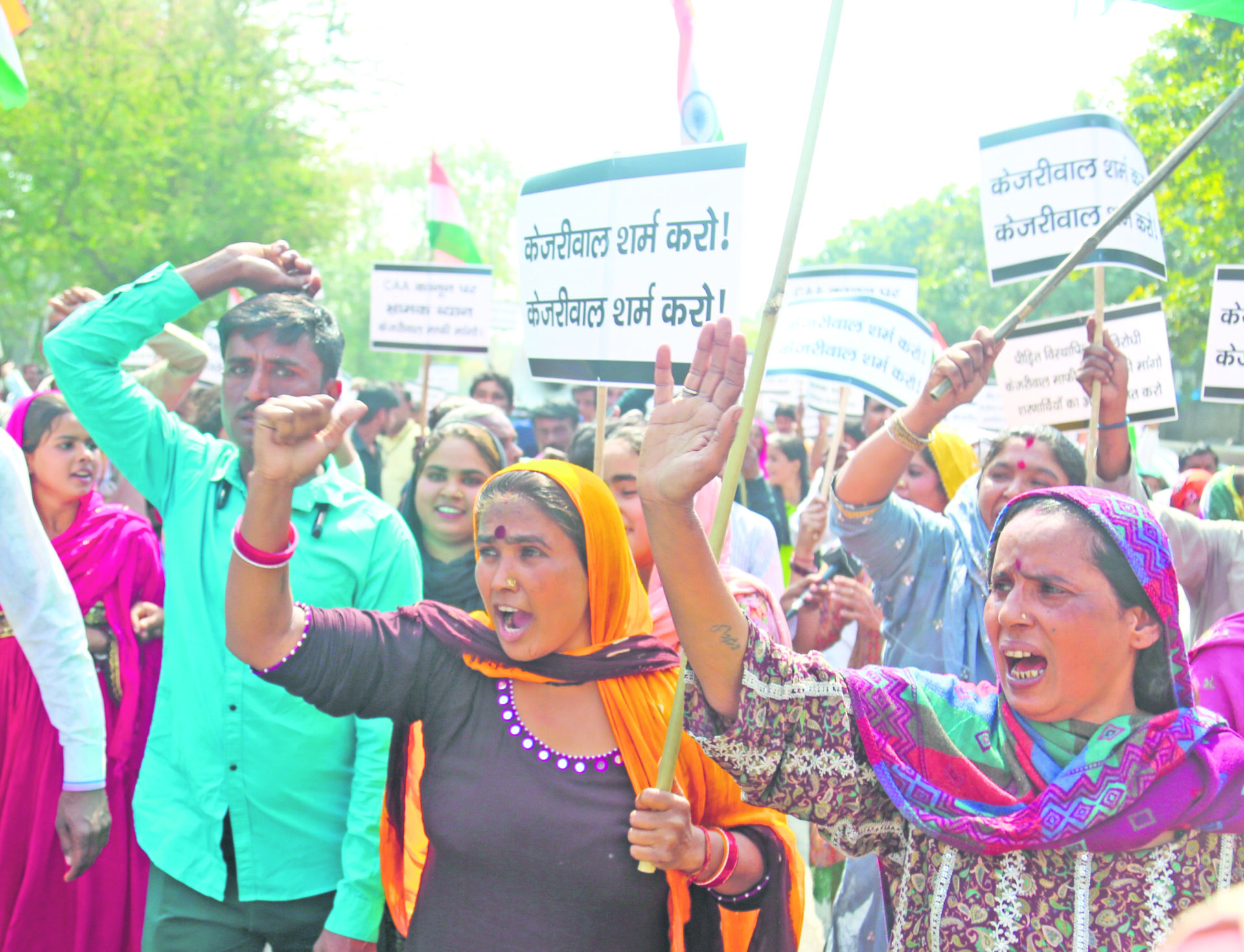When we look at the final list of the NRC (Assam), which can be viewed as a pilot for a national NRC, again we do not find any hard evidence of discrimination against Muslims.
The charge that the Citizenship Amendment Act (CAA) is a prelude to the NRC (National Register of Citizens) that will be used to target Muslims and render them stateless is a myth of unmitigated proportions. No anti-CAA opponent including the so-called public intellectuals and the voraciously voluble TV anchors and newspaper columnists have been able to proffer a plausible explanation for this baseless accusation. They are indulging in hit and run tactics under the assumption that they will not be held accountable amidst the din that has been engendered.
The contention that only poor illiterate Muslims because of their inability to obtain required documentation will be affected by a future NRC is not based on logic or evidence; it is an alarmist and provocative political ploy.
According to the 2011 census, illiteracy rates among Hindus and Muslims were 42% and 36% respectively. When translated into actual numbers these figures will be 30 crores for Hindus (36% of 96 crores) and 7 crores for Muslims (42% of 17 crores). So, using these figures it appears if illiteracy is the glitch in implementing the NRC it will prove more discriminatory to a larger number of Hindus than Muslims unless you subscribe to a theory that an illiterate Muslim is more illiterate than an illiterate Hindu.
Similarly, economic disparity between the communities is not that significant to be a game changer. According to the NSSO survey, the average per capita consumption expenditure (used as an indicator of income) among Muslims is just Rs 32.66 per day, which is the least among all religious groups. It is highest among Sikhs (Rs 55.30), followed by Christians (Rs 51.43) and Hindus (Rs 37.50) (https://www.thehindu.com/opinion/op-ed/no-respite-from-poverty-for-muslims/article25429598.ece
In current times a 5 rupee/day difference will not amount to a significant enhancement of social status to give the person any advantage in negotiating the NRC.
When we look at the final list of the NRC (Assam) which can be viewed as a pilot for a national NRC, again we do not find any hard evidence of discrimination against Muslims.
First, the documentation demanded of the applicant is the same for all religions including both Hindu and Muslim.
Second, the charge that there could be discrimination in the processing of the application is not borne out by the results of the final update of the NRC.
Of the 19 lakh individuals excluded from the NRC, there were approximately 11 lakh Hindus, 7 lakh Muslims with the remaining belonging to tribal groups. (KV Thomas Centre for Public Policy Research Independent. In-depth. https://www.cppr.in/wp-content/uploads/2019/12/The-Politics-of-NRC-and-its-Pan-Indian-Dimensions.pdf).
According to the 2011 census, there were 1,91,80,759 Hindus and 1,06,79,345 Muslims in Assam. Using these numbers, the exclusion rate for Muslims amounts to 6.5% (7 lakhs/10679345); in other words, 93.5% of Muslims or the majority were approved and included in the NRC.
For Hindus the exclusion rate was 5.7% (11 lakhs/19180759); a figure that is not significantly different from the exclusion rate for Muslims. If there was an intent to disfavor Muslims, one would have expected this difference to be much more. All this goes to prove that the fear mongering about the NRC does not have a valid basis.
When we drill down to the district level the exclusion rates are even more revealing. The exclusion rates for the Muslim-majority border districts of South Salmara, Dhubri and Karimganj were 7.22%, 8.26% and 7.57%, respectively which was lower than the statewide average of 12.15%—further evidence of non-discrimination. Contrastingly, Hindu majority districts like Karbi Anglong (14.31%) and Tinsukia (13.25%) had a higher exclusion rate. (District-wise figures released for Assam NRC. The Daily Star. August 2, 2019).
The NRC may not be a fool proof system at present and may need further refinement to be more effective and accurate, but one thing it is not: an instrument that can be manipulated to discriminate against Muslims. Hindus and Muslims who are legitimate citizens of India will be in the same boat.
By deliberate misinformation, an ideologically entrenched liberal lobby has willfully fed into the paranoia prevalent in the minority community to stoke unwarranted concerns fueling extremist elements to gain the upper hand. Liberals do not do the Muslims any good. By provoking unwarranted anxiety and enhancing radicalism they are creating an insecure, volatile and dangerous polity within the country; a dangerous ghetto.
* Excerpt from the author’s book, “CAA-NRC. The Truth Explained”, Notion Press 2021.

